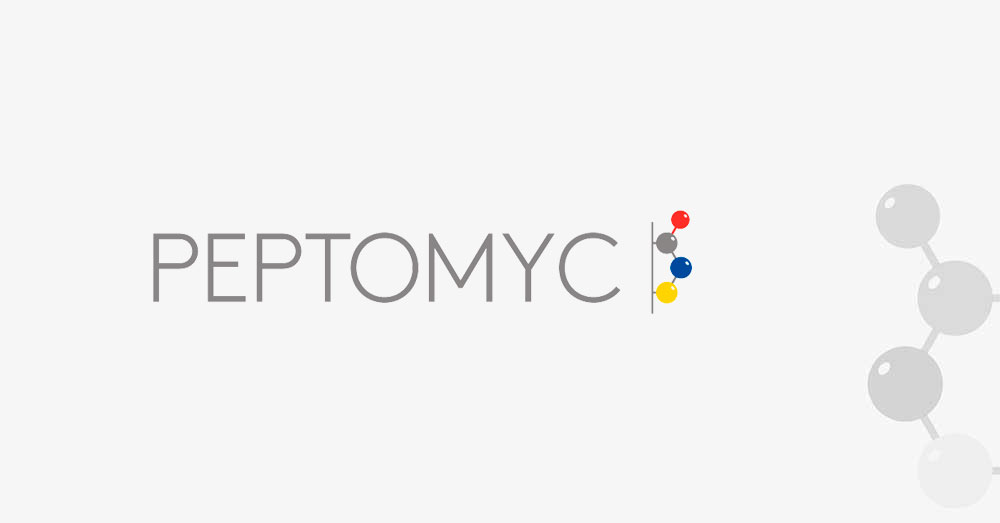Barcelona, 9th of December 2024
Peptomyc is pleased to announce the approval of a Research Investigational New Drug (IND) application for a groundbreaking Window of Opportunity trial in collaboration with Oregon Health & Science University (OHSU) Knight Cancer Institute and Brenden-Colson Center for Pancreatic Care (BCCPC). This trial will evaluate the pharmacodynamic effects of OMO-103 in patients with pancreatic ductal adenocarcinoma (PDAC). The study aims to expedite drug development, improve understanding of pharmacodynamic parameters, and identify biomarkers for better patient selection.
Dr. Manuela Niewel, Chief Medical Officer at Peptomyc, stated, “This collaboration with OHSU Knight Cancer Institute and BCCPC represents a significant step forward in our mission to develop more effective, personalized cancer treatments. The Window of Opportunity trial design allows us to gather crucial data on our investigational compound, potentially accelerating the drug development process.”
This partnership combines Peptomyc’s expertise in anti-MYC mini-proteins (namely the investigational drug OMO-103) with OHSU’s state-of-the-art research facilities and multidisciplinary approach to cancer treatment.
“We are excited to collaborate with Peptomyc on this important trial,” said Dr. Charles Lopez, Principal Investigator at OHSU Knight Cancer Institute and BCCPC. “By conducting this study, we hope to gain valuable insights that will ultimately lead to improved outcomes for cancer patients.”
The trial is expected to begin enrollment in March 2025 and will focus on ≥18-year-old patients with advanced PDAC.
About PDAC
PDAC is an aggressive form of cancer with a poor prognosis and increasing incidence. It accounts for over 85% of all solid pancreatic tumors. The 5-year relative survival rate is only about 11% for all stages and 3% for metastatic disease. PDAC is characterized by late detection and particularly aggressive biology, which contribute to its dismal outcomes. Surgical resection followed by adjuvant chemotherapy is the only potentially curative treatment, but it is only possible for 10-20% of patients.
Given these challenges, PDAC remains a critical area for oncological research and innovative treatment approaches.
About MYC
MYC is the most dysregulated oncogene in human cancer, controlling multiple transcriptional programs associated to most hallmarks of cancers, including increased proliferation, metastatic potential, immune suppression and resistance to treatment.
About OMO-103
OMO-103 is a first-in-class and best-in-class mini-protein against MYC. It has successfully been tested in a Phase Ia study in all-comers solid tumors and is currently in a Phase Ib study in metastatic PDAC patients in combination with standard of care chemotherapy.
About Peptomyc
Peptomyc (www.peptomyc.com) is a spin-off from VHIO – the Vall d’Hebron Institute of Oncology – and ICREA – the Catalan Institute of Research and Advanced Studies, founded in December 2014 in Barcelona, Spain. The company is focused on the development of innovative cell-penetrating mini proteins targeting the MYC oncoprotein for cancer treatment and based on Dr. Soucek’s scientific research in Omomyc (the best direct Myc inhibitor known to date). It is the first company to have successfully completed a Phase 1 clinical trial with a direct MYC inhibitor.
About OHSU
The OHSU Knight Cancer Institute is an NCI-designated Comprehensive Cancer Center known for its groundbreaking research in targeted therapy and early cancer detection. The institute’s mission is to end cancer as we know it through innovative research, personalized treatment approaches, and community outreach programs.
OHSU’s Brenden-Colson Center for Pancreatic Care is a center of excellence for translational and clinical research programs that focus on three main areas essential for alleviating suffering from pancreatic diseases: Earlier Detection, Advanced Therapy, and Patient Resilience. The BCCPC program emphasizes close collaboration among clinicians and laboratory scientists to advance pancreatic cancer research. https://www.ohsu.edu/brenden-colson-center-pancreatic-care
Disclosures Regarding Forward-Looking Statements
Peptomyc is including the following cautionary statement in this document to make applicable and take advantage of the safe harbor provisions of the Private Securities Litigation Reform Act of 1995 (or equivalent law) for any forward-looking statements made by, or on behalf of, the Company. Forward-looking statements include statements concerning plans, objectives, goals, projections, strategies, future events or performance, and underlying assumptions and other statements which are other than statements of historical facts. Certain statements contained herein, including, without limitation, those that are identified by the use of the words “anticipates,” “estimates,” “expects,” “forecasts,” “intends,” “plans,” “predicts,” “projects,” “believes,” “seeks,” “will,” “may” and similar expressions, are “forward-looking statements”. Forward-looking statements involve risks and uncertainties, which could cause actual results or outcomes to differ materially from those expressed in the forward-looking statements. The Company’s expectations, beliefs and projections are expressed in good faith and are believed by the Company to have a reasonable basis, but there can be no assurance that management’s expectations, beliefs, or projections will result or be achieved or accomplished.



